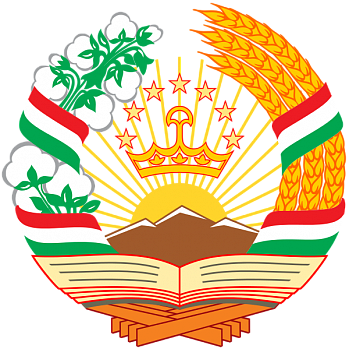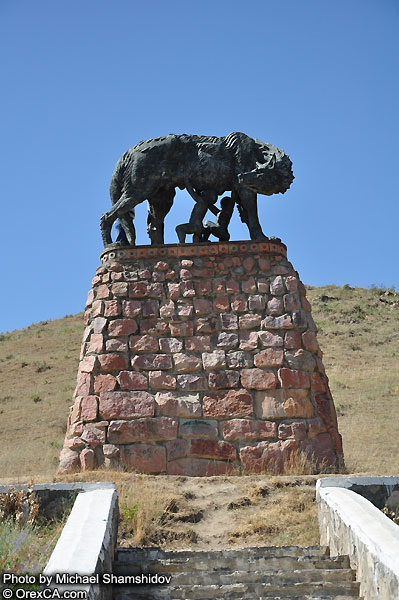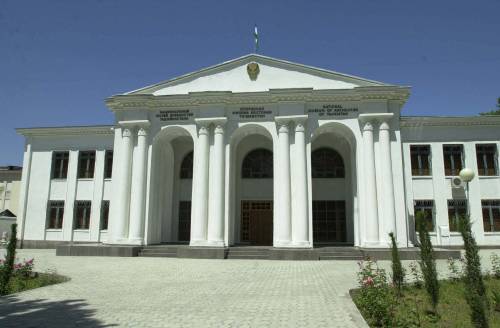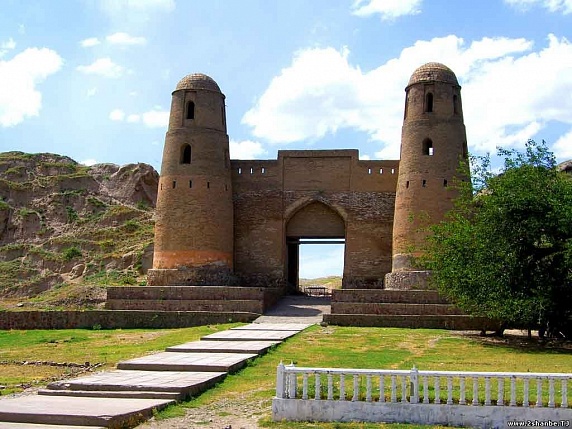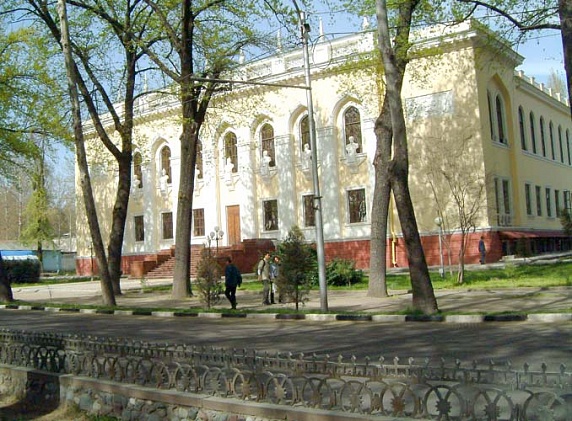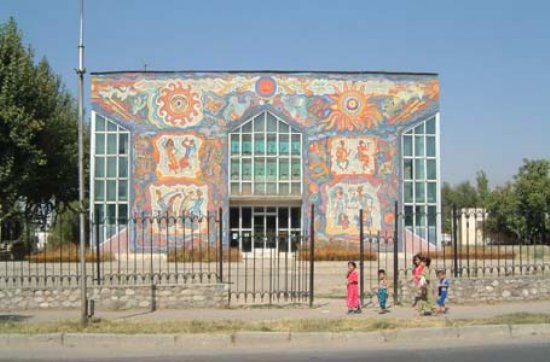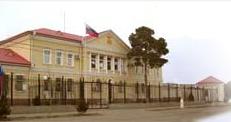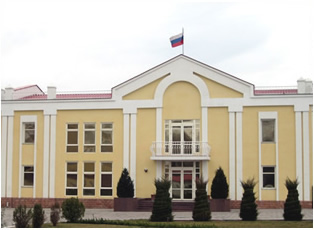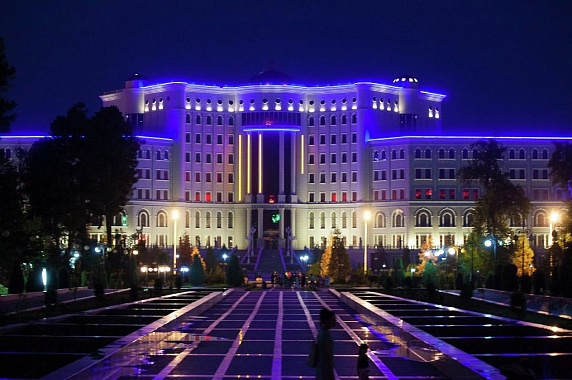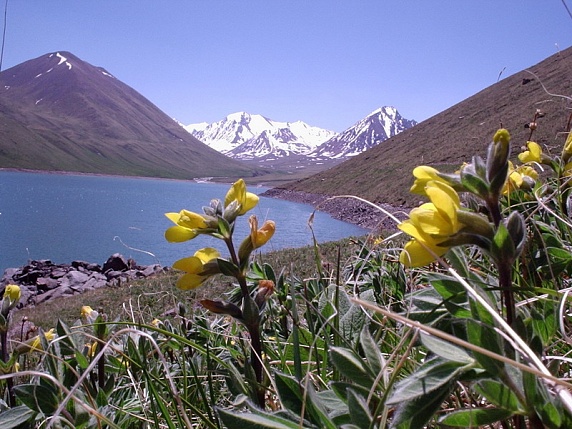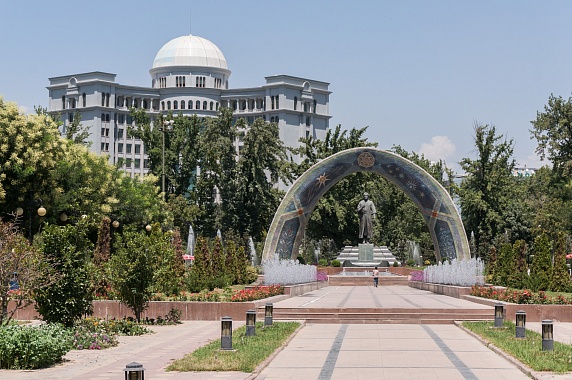 the Republic of Tajikistan
the Republic of Tajikistan
Foreign Minister Sergey Lavrov’s remarks and replies to questions in the Russian-Tajik Slavonic University, Dushanbe, February 5, 2019
Mr Salikhov, friends,
First of all, I would like to thank you for inviting me to speak again at your university that is rightly considered the flagship of bilateral cooperation in science and education. Congratulations on moving into your new premises. I have not visited this new place since you moved in. So, I wish you all the best!
This is not our first meeting in this format. Open communications without any formalities reflects the strategic character of our partnership and the allied relations between the Russian Federation and Tajikistan. Today, it would be no exaggeration to say that our bilateral cooperation is growing on both sides. This was confirmed today by a very open conversation our delegation had with President of Tajikistan Emomali Rahmon. It again revealed the desire of Russia and Tajikistan to carry out all agreements we reach, primarily for maintaining a top level dialogue. This dialogue is regular. During the past two years, President of Russia Vladimir Putin visited your country twice. Last year, Prime Minister of Russia Dmitry Medvedev and Federation Council Speaker Valentina Matviyenko visited your country.
Today we certainly acknowledged very good dynamics when it comes to our trade and economic ties. Our trade increased by almost one third last year. We have formed a solid contractual foundation for economic, investment and other cooperation, and continue improving it.
I would like to make a special mention of the intensive character of our humanitarian cooperation. Its steady development is facilitated by your university, the Russian Centre for Science and Culture in Dushanbe and its subsidiary in Khujand, and Russky Mir (Russian World) Foundation’s affiliates in the leading universities of your republic, as well as Russian language study centres.
I would like to express my sincere gratitude to Rector Nurali Salikhov for his encouraging words in support of the Russian language and education. Indeed, we do appreciate it.
We also appreciate the desire of many Tajik citizens to receive a Russian education. About 28,000 Tajiks study on Russian programmes. Out of this number some 8,000 study in the RTSU and affiliates of the MSU, MPEI and MISiS.
We welcome the invariable support of the Tajik leaders who are interested in the Russian language and Russian culture. The agreement of our presidents on joint educational projects is being carried out. Starting in September 2017, Russian teachers started working in schools and presidential lyceums. Over 50 teachers have already received such jobs. We hope this trend will be backed by a relevant intergovernmental agreement. In addition to this, this year we would like to start building five schools where instruction will be given in the Russian language in line with the latest standards.
We are expanding our cultural contacts. Days of Culture of the Republic of Tajikistan and cross days of twin cities – St Petersburg and Dushanbe – were a great success recently.
Foreign policy cooperation and coordination of steps in the international arena have become an inalienable part of our strategic partnership. We are working closely both in the bilateral format and in different multilateral structures, such as the CSTO, CIS, SCO, UN, and OSCE. We are grateful to our Tajik friends for their support of Russian initiatives at various international venues. I would like to make a special mention of the resolution that we adopt in the UN every year. It is devoted to the inadmissibility of the glorification of Nazism. Today this is a very important issue, considering the attempts to resuscitate neo-Nazis and justify criminals. In neighbouring Ukraine, streets and squares are named after such criminals while their birthdays are proclaimed memorable dates.
We welcome an adamant desire of our Tajik friends to continue promoting dialogue in the CIS that was chaired by Tajikistan last year. Its actions in this position facilitated further consolidation of our CIS cooperation. A number of documents were signed to deepen cooperation in a wide range of spheres from the economy to countering security threats. I would like to use this opportunity to congratulate you on the decision to make Dushanbe the CIS cultural capital in the year 2021.
The Eurasian Economic Union (EAEU) is playing an increasingly important role in our common space. It unites about 182 million consumers and its trade is approaching $60 billion. It has established common markets of goods, services, capitals and workforce.
Membership in the Eurasian Economic Union (EAEU) objectively contributes to the continued growth of the national economies of the participating countries and helps them better protect their interests amid complex developments in international politics and the global economy. The EAEU is energetically building on its international contacts.
We are aware that our Tajik friends are studying the processes of Eurasian integration with great interest. Today, we discussed this during the talks at the Foreign Ministry. We suggested studying the experience of the EAEU, including through the prism of Kyrgyzstan’s successful accession to the Union. As you may be aware, last year the EAEU introduced the status of observer state. It was granted to Moldova last year.
Of course, the Collective Security Treaty Organisation is the main tool of our military-political alliance. The collective forces of the Organisation have repeatedly demonstrated their readiness and ability to respond effectively to all kinds of threats. The CSTO Kanal and Nelegal operations to counter drug trafficking and illegal migration were recognised by the UN. Tajikistan, which is home to the 201st Russian military base, is making a special contribution to strengthening regional security on the southern flank of the CIS. We are doing our best to ensure that our military base is fully functional, including by supplying it with all the necessities. I am pleased to welcome the officers who, as I understand, are serving at this site of the Russian Federation in Tajikistan.
Combining efforts in the name of security and stability is especially needed today as the international situation remains very tense. This is a direct consequence of unilateral, often violent, actions of a number of Western states led by the United States, which seeks to retain, at any cost, its dominance in the international arena and which is stubbornly clinging to the unviable concept of a unipolar world. We see how the foundation of the international security architecture formed after World War II is being systematically eroded, and the critical strategic stability treaties are being destroyed. Everyone is aware of the latest such development, which is the United States’ unilateral withdrawal from the INF Treaty under the far-fetched and unsubstantiated pretext of Russia's alleged violation of this treaty. Not a single fact was provided, as President Putin said. Those who are interested in this subject are aware of it.
The Washington’s policy of scrapping all arms control treaties is accompanied by disregard for the fundamental principles of interstate relations, such as non-interference in internal affairs of sovereign states, non-use of force or threat of force. This destructive policy has already led to the collapse or undermining of statehood in a number of countries, primarily, the Middle East and North Africa, which was immediately taken advantage of by numerous terrorists and radicals, who continue to wreak havoc not only in this region, but also in Central Africa.
Despite significant successes in fighting ISIL and other extremist groups, which are largely due to the vigorous efforts of the Russian military and diplomats in Syria, terrorists continue to pose a major threat to the entire global community, Russia and Central Asia. They have adapted to new realities. Their ties with the drug trafficking business and organised crime are getting stronger. The situation is further aggravated by the fact that the international community has so far been unable to unite in order to wage an uncompromising war on terrorism based on international law in accordance with the well-known initiative advanced by President Putin. Geopolitical ambitions and double standards, as well as the frequent use of radical groups to achieve self-serving geopolitical goals, continue to block the way to joining efforts in order to fight terrorism.
The situation in neighbouring Afghanistan remains disquieting. Of particular concern are the attempts by ISIS to establish a foothold there and to take control of sections of the northern Afghan border, including on the border with Tajikistan. We believe that the Moscow consultations on Afghanistan are the best platform for international promotion of the peace process, which should be pursued in parallel with the ongoing fight against terrorism. Represented in this format are all the main players, including, of course, Afghanistan itself, the five Central Asian countries, Russia, China, India, Pakistan and Iran. The United States is regularly invited to join this format, but it has instead embarked on a path of unilateral and non-transparent actions, which, unlike the Moscow format, does not involve all external players which can have an influence on Afghanistan. As such, their interests are not reflected. We held a Moscow format meeting in November 2018 with the participation of our Tajik friends, which we used to lay the groundwork for establishing a direct dialogue between the government of Afghanistan and the Taliban. Notably, the OSCE Conference on Countering Terrorism and Extremism held in Dushanbe in May 2018 is yet another contribution by your country to overcoming international challenges.
Russia and Tajikistan closely and fruitfully cooperate in the fight against new challenges and threats. We regularly hold joint military exercises, and specialised security agencies have streamlined their mutual dialogue. We focus on illegal drug production and trafficking in Afghanistan and efforts to prevent the infiltration of illegal paramilitary units from Afghanistan. This is a high-priority aspect of our bilateral dialogue and CSTO activities, and this also considerably reflects SCO activities in the context of a special declaration on combating extremism that was passed a year ago. This highly important and up-to-date document was circulated at the UN and aroused great interest.
Russia continues to help strengthen the combat potential of Tajikistan’s Armed Forces. We are re-equipping the Armed Forces of Tajikistan under the current modernisation programme. We deliver modern weapons and military equipment. Today, about 600 Tajik cadets study at the Russian Defence Ministry’s higher education institutions. To date, 2,370 Tajik service personnel have been trained in Russia during the entire period of our defence cooperation project.
Friends,
There is such a saying in Tajikistan: “The heart, rather than the tongue, will help the partner understand us better.” We need the tongue, no matter what, and when the tongue speaks what is deep inside your heart, then, to my mind, this is the greatest manifestation of sincerity and friendship. I wish you all the very best.
I am ready to answer your questions.
Question: What is the Russian side doing to resolve the matter concerning the Kuril Islands in the context of the US withdrawal from the Intermediate-Range Nuclear Forces Treaty?
Sergey Lavrov: Certainly, there is a link between the INF Treaty and the Kuril Islands. Current security problems in relations with our Japanese neighbours include the deployment of launchers in Japan under the US global missile defence programme. These launchers are similar to US launchers that have already been deployed in Romania and that will also be deployed in Poland. This implies the MK41 launcher which is being officially deployed to fire defensive interceptor missiles and to therefore implement US missile-defence plans. But the very same launcher can also fire Tomahawk ground-launched cruise missiles in direct violation of the INF Treaty.
We did warn our Japanese colleagues when they entered into this agreement with the United States that this would violate the INF Treaty.
Regarding the matter of the South Kuril Islands in relations with Japan, our leaders instructed the concerned officials to expedite talks on the peace treaty. We have been prepared to discuss the matter this way for a long time. Unfortunately, it is Tokyo, rather than Moscow, that should take the first step. It should unconditionally recognise the results of World War II, including the Russian Federation’s sovereignty over all the Kuril Islands, the South Kuril archipelago included. We are waiting for our Japanese colleagues to think this situation over. Japan is the only country that has failed to recognise the results of World War II, although it joined the UN and ratified the UN Charter stating expressly that such results are final and not subject to revision.
Question: What is the Russian Government doing to prevent the outflow of its intellectual resources abroad?
Sergey Lavrov: The Russian Constitution does not restrict our citizens’ movement or the right to choose the country of residence. Our citizens have this right and they exercise it. It is hard to tell if someone is creating this problem artificially. People have every right to fulfil their potential in the spheres that they believe to be in most demand abroad. Of course, we are interested in solving demographic issues, too. This involves working to increase the birth rate, decrease the death rate, and creating a good environment for people to be able to fulfil as much of their potential in the Russian Federation as possible, while preserving their right to choose the country of residence.
The work carried out by our leadership as directed by President of Russia Vladimir Putin in line with the plans developed by the Russian Government is aimed at making life in Russia better, fuller and more interesting. I see no other answer to this question. There is no magic recipe; we cannot issue a ruling so that people will instantly start coming back – it does not work that way. But the work underway in Russia yields results, too. Many people have started coming back, including young people working in information and communication technology – including those working in Silicon Valley. Russia is creating new centres to stimulate young people’s interest in modern technology. Such centres can be found in Sochi and the Moscow Region; there, one can also find various programmes for young leaders that thousands of young people participate in. All of this allows our citizens to explore their own country and make life in it convenient and comfortable not only for them, but also for their family and friends.
Question: Anything that happens in Afghanistan has a direct bearing on the national interests of Tajikistan and Russia. What can we expect from the meeting of representatives of the Afghan opposition as part of the intra-Afghan dialogue that is scheduled to take place in Moscow this month?
Sergey Lavrov: I had an opportunity to comment on this matter only a few days ago. It is not the Russian government that organises this meeting, but the Afghan diaspora in Russia, a consolidated community that, understandably, cares about its homeland. There is much speculation and manoeuvring going on regarding the elections in Afghanistan. The vote was postponed for three months, although the reasons for doing so or choosing to delay the election for this period of time are not clear, and the decision was taken with hardly any consultations. You are absolutely right that Afghanistan is an essential security matter for Tajikistan. All Central Asian countries must be involved in devising approaches to promoting a settlement in the Islamic Republic of Afghanistan. The meeting will be held by the Afghan diaspora in February, and we support their initiative in terms of logistics and granting visas to those who will attend. We believe that this meeting will be useful. Not only the opposition, but also political figures who do not have any official status in Afghanistan but want the country to get out of the crisis spiral and place it on a trajectory of steady development, will be present at the meeting. I know that former Afghan President Hamid Karzai has been invited to attend the meeting, alongside former foreign ministers Zalmai Rassoul and Rangin Spanta, former Presidential National Security Adviser Hanif Atmar and head of Hezb-e-Islami party Gulbuddin Hekmatyar. We believe that this meeting will help promote a settlement in Afghanistan, since it has long become an international problem that has to be addressed in a transparent manner with input from all the Afghan political forces and taking into consideration the interests of all neighbouring countries.
Question: There are four Slavic universities in various republics with their own currencies and funding arrangements. In Russia, there are three types of institutions for higher education affiliated with the Ministry of Science and Higher Education: budget-funded, autonomous or public institutions. But our Slavic universities do not fall into any of these categories. Would it make sense, in your opinion, to create a special interstate status for our universities? This would help at the beginning of the year as we wait for funding to come from Russia. Since we do not fall into any of these three categories, the allocation of funds takes longer. A new year has begun, bringing with it worries about whether salaries will be paid.
Sergey Lavrov: There should be other ways of resolving the problems with salaries. I had a similar question yesterday at the Kyrgyz-Russian Slavic University in Bishkek. We cannot simply extend the Russian jurisdiction to all operations related to Slavic universities be it here in Tajikistan, in Kyrgyzstan or in Armenia.
Decisions to establish these universities were taken collectively by the corresponding agencies and senior government officials in Russia and other countries. I do not think that the need for universities to work with currencies of their respective countries should get in the way of the running of these establishments. You have pointed out certain challenges, including salaries. However, you can raise this matter with the university’s rector or use other channels to bring these concerns to the attention of Russian and Tajikistani governments, considering the attention and support that your institution enjoys from President of Russia Vladimir Putin and President of Tajikistan Emomali Rahmon. I have no doubt any objective can be achieved as long as it is clearly articulated.
Question: Our university is doing everything to improve the level of proficiency in the Russian language and to expand the vocabulary of our students, and also to elevate their cultural level. There used to be a good tradition of sending second-year students to various universities in Russia where they would not only get to know the Russian culture and traditions, but also find themselves in a Russian-speaking environment. Unfortunately, this tradition no longer exists. Is there a way of bringing it back, considering how vital it is in this day and age?
Sergey Lavrov: This question is not for me but rather for the Russian Ministry of Science and Higher Education. As for exchanging delegations, post and undergraduate students, I can say that we have exchange programmes for diplomats, mostly young ones, who get internships abroad, while the countries they go to send their diplomats to Russia. I do not see why the tradition when it comes to education cannot be put once again in place.
Nurali Salikhov, Rector of RTSU: The Russian-Tajik Slavic University’s development programme includes the Academic Mobility clause; this year, we sent 95 students to study abroad, including to Russia.
Sergey Lavrov: I understand that this is not so much about studying as about language practice. Again, this is another ministry’s job. But I have no doubt that such exchanges are useful, just based on the experience of our diplomatic exchange programmes.
Question: One of the most prestigious areas of study at Russian-Tajik Slavic University is international relations. As a professional, what would you like to say to future Tajik diplomats?
Sergey Lavrov: First, I will quote a classic: “Learn, learn and learn.” My second hope is for good luck, creativity and imagination, as they will need those too. Sometimes it is important to come up with something that no one expects, but it could work unexpectedly.
Question: What are you guided by in your life? What is your motto? What motivates you?
Sergey Lavrov: It is difficult to answer your question. Probably people who are busy doing things have too little time to think about what they are guided by. I would say that is something philosophers do. Our job is simple: perform the tasks the Russian President and leadership have set in foreign policy, and do it honestly, efficiently and effectively. This is a very trite answer, but that’s what it is.
Question: As you know, politics is a condensed manifestation of the economy. In the context of Eurasian integration, is there a plan to adopt a single currency in the CIS?
Sergey Lavrov: In the Eurasian Economic Union (EAEU), there is a supranational body established by the member states – the Board of the Eurasian Economic Commission. It has supranational authority. Yes, there is a range of plans; common capital, labour, workforce and services markets have already been formed. We are planning on establishing a common energy market by 2025.
I have not heard about any such goals in the sphere of currency relations. I cannot say if this is being discussed or not – at least I don’t know anything about it.
Question: My question is about personnel training.
You noted today that the existing world order is about to change a lot. The next decade could be dominated by a struggle to create a new multi-centre world order, that is, there will be several centres of global governance. Most likely, the new order will rely on integration associations, like the EAEU and the CSTO for Russia. To pursue a unified and coordinated policy within the Union, we will need qualified personnel with good understanding in these fields. Will Russia further deepen international cooperation in the training of qualified personnel while paying attention not only to the quantitative, but also to the qualitative part of the matter? Is it possible for RTSU students to enroll with the Diplomatic Academy of the Russian Foreign Ministry?
Sergey Lavrov: As far as I understand, your question about the attention to personnel training concerns not only diplomatic staff, but personnel in general. Russia is certainly interested in developing a quality education system, without throwing out all the good things achieved during the Soviet era, while keeping them in demand in today’s conditions. Of course, we are interested in our partners, our allies, especially those cooperating with us in education, also working for these goals. Mobility programmes, faculty and graduate student exchanges, scholarships – all of that is aimed at making education as coordinated and high quality as possible.
As for enrolling with the Diplomatic Academy of the Ministry of Foreign Affairs, there are admission rules, and anyone can apply if they have a university degree and are interested in earning another one. But the Diplomatic Academy also offers regular higher education – bachelor’s and master’s degree programmes. Therefore, anyone without a university degree can apply at the Diplomatic Academy after high school. University graduates can enroll with its graduate school or advanced professional training programmes. There are various options. By the way, the Academy is actively pursuing the exchange and mobility programmes I mentioned.
Question: In September, the representatives from Tajikistan attending an inter-parliamentary session at the Federation Council discussed constitutional and legislative breaks for citizens of Tajikistan, who come to Russia as seasonal labour. Specifically, they mentioned patents and pensions for migrant workers. Did you discuss this subject during the talks? Can we expect a migration amnesty at some point in the future?
Sergey Lavrov: To be honest, there was an amnesty, and not just once. It is quite important to work with migrants before they head off to Russia so that they avoid any shady arrangements and know for certain exactly who their employers are going to be and that the contracts they will get will be legal. They must also be sure that their passports are not taken away from them and that they get their wages on a regular basis and do not get paid under the table. We suggest that Tajikistan and Russia sign additional agreements that will guarantee migrant workers’ rights. Specifically, we need to sign an agreement on pensions. This is one of the documents lying on the negotiating table. It is necessary to sign an agreement on an organised recruitment of migrants here in Tajikistan before their departure to Russia (as I have just mentioned), an agreement on readmission, that is, on Tajikistan’s commitment to accept back those migrants who violate Russian laws. We have signed a similar readmission agreement with the EU and this works well. No need to be afraid of this.
We have representatives from the migration services operating in Tajikistan and we have your migration staff working in Russia. We need to define their status by a relevant agreement. Having said what is yet to be done, let me mention the fact that Tajikistan is, if I am not mistaken, the only EAEU country that enjoys the full range of preferences with regard to its citizens taking jobs in Russia. For example, they can stay without requiring to register for 15 days instead of seven. It makes a difference. A patent is issued for three years. This is also a thing of no small importance. Certainly, one would like the timeframes for issuing patents to be shorter and documents to cost less. But this is something that should be negotiated.
To reiterate: a package of documents is on the table and they are needed to finally lead this sphere out of the shadows so that it becomes fully legal and comfortable for the migrants themselves and there are no security risks either for Russia or for Tajikistan. Today we said that it should be signed as soon as possible.
Question: What is your opinion of the developments in Venezuela? Where might they be headed?
Sergey Lavrov: We believe the situation is alarming and see it as the result of a flagrant violation of the principle of non-interference in the internal affairs of sovereign states. I believe it is outrageous that a foreign country should declare that Venezuela has a new interim president. It is also alarming that the initiatives aimed at launching a national dialogue, which we see as the only solution to internal problems, have been rejected in favour of other ideas, the goal of which is to effect regime change.
Mexico and Uruguay have called for a conference involving all the political forces in Venezuela to be held in Montevideo (it was to be held this week). You probably know that President Nicolas Maduro has expressed willingness more than once to enter into such a dialogue, but the opposition leader who was designated the interim president has categorically rejected the idea. Some of our colleagues, including in the EU, have advanced a mediation initiative and have created a contact group to which they invited a dozen EU countries and as many Latin American states. At the same time, the leading EU countries have declared the incumbent president illegitimate and the interim president legitimate, and issued an ultimatum that a new presidential election be called without any dialogue.
You can see that a constructive approach with an inclusive national dialogue and the coordination of a mutually acceptable agenda has been replaced with formats that are based on the logic of ultimatums and dictate. I think that this is a misguided approach. Moreover, it is surprising that our readiness to help find a format that would allow the Venezuelan sides to come to an agreement, as well as China’s concerns have not been taken into account. We still believe that this crisis can be settled only if the Venezuelan government and the opposition begin talks. The only other option is regime change, something the West has engaged in many times before. Not a single country where this happened has benefitted from the change.
Question: Does Russia see China as a rival in Central Asia, and if so, in which sphere?
Sergey Lavrov: We do not see China as a rival. Russia and China are strategic partners. Overall, their plans for Central Asia and Greater Eurasia are in agreement. Several years ago, President Vladimir Putin proposed promoting practical cooperation towards a major Eurasian project involving EAEU, SCO and ASEAN nations, with these processes open to all the Eurasian states.
China put forth the Belt and Road initiative. President of Tajikistan Emomali Rahmon and President of Russia Vladimir Putin attended a conference devoted to this topic in 2017. Another such conference will be held this year. Major events took place in the past two years. In particular, we have coordinated the approach of the EAEU countries and the Belt and Road initiative to transport infrastructure and, in general, routes for the transit of goods between Asia and Europe by land and also via the Northern Sea Route. We have certain opportunities in this respect, which our partners can use. I believe that the document signed by the EAEU and China to harmonise these processes is a major decision that can prevent Central Asia from becoming an area of unfair competition where some seek to force out their competitors.
We see the growth of interest in Central Asia. We have been allies for many years, and we share centuries of a common history, including as parts of the same state. We cannot be indifferent to the foreign relations of our Central Asian friends.
The United States, the EU, Japan, South Korea and India have taken an interest in Central Asia. The 5+1 format between the five Central Asian states and one of the above countries is a fact of life. We believe that Russia could use this format as well, in addition to the other formats where we closely cooperate with Central Asian countries, such as the SCO, the CIS and the CSTO. We had a common economy back in the Soviet era. These are not mere words. The water and energy problems of the region can be easily streamlined if we apply the experience gained in the Soviet era. We are ready to share this experience. I think this would also be in the interests of our Central Asian friends.
Question: The Immortal Regiment action launched in Russia has enjoyed support practically throughout the world owing to the support of embassies. Do you think efforts to instill patriotic values should be continued?
Sergey Lavrov: Much is being done in this respect. There are actions like the Immortal Regiment and St George’s Ribbon. The Defence Ministry is promoting many initiatives, such as the Era Centre for Talented Children and the quite popular Yunarmiya project.
You called it instilling patriotic values but it is possible to describe it in simpler terms – knowledge of history and preventing its rewriting. We discussed how we cooperate with Tajikistan and the OSCE, in part, by promoting the resolution on countering the glorification of Nazism and neo-Nazism. We also adopted a decision on the unacceptability of mocking monuments to the heroes who liberated Europe and many other related aspects. It is very easy to con people who are oblivious to anything to do with their roots and pull them in an entirely wrong direction.
When we see neo-Nazi marches in EU capitals, when the same Ukraine that positions itself as “the main European hope” decides to celebrate the birthdays of Nazi criminals and collaborators like Bandera and Shukhevich, when the founding of the Ukrainian Insurgent Army (UPA) is also marked as a national holiday instead of Armed Forces Day, we understand that certain forces want to rewrite history.
I don’t even want to mention the Church. The decision on it is absolutely illegitimate by all canons of non-interference of the state in church life and Russian Orthodox canons because the 1686 Constantinople verdict on the transfer of the Church under the aegis of the Moscow Patriarchate is irrevocable (it is fairly easy to read it). Therefore, mockery of history with a view to setting Russia and Ukraine against each other and preventing their friendship is a crime against compatriots.
At the same time I’d like to draw your attention to the fact that this Nazi virus has deep roots in Ukraine. Militants bearing Right Sector logos destroyed another church literally yesterday. The leader of the clearly neo-Nazi Right Sector Dmitry Yarosh (who is now a respectable deputy) said two days after the unconstitutional coup d’etat that took place in February 2014 contrary to all guarantees given to President Viktor Yanukovych by the opposition and European countries, including France, Germany and Poland, that a Russian will never understand a Ukrainian, speak Ukrainian or revere Ukrainian heroes whom I mentioned as neo-Nazis. So, according to him, “a Russian should be either eliminated or ousted from Crimea.” When we recall this statement for our European friends who imposed sanctions on Russia because the Crimeans voted for reunification with Russia, and ask them how they would react to the threat of elimination if they lived in Crimea and why they don’t simply understand the position and respect the right of the Crimeans in this context, they just avert their eyes in embarrassment.
This virus is also contaminating respectable international agencies. There is the European Court of Human Rights in the Council of Europe. It operates on the principle of subsidiarity that means that it performs only those tasks that cannot be handled at a more local level. Only when all courts at home reject a case it is possible to take it to the Court of Human Rights.
I don’t remember what city it was but in Ukraine a woman cooked eggs on the Eternal Flame. She was arrested and given a suspended sentence of two years for insulting the memory of the dead (there is a relevant article in the Criminal Code). She took the trouble of going through courts of all levels in Ukraine. Her case was rejected everywhere and she turned to to the European Court of Human Rights, which took her side and said that the Ukrainian authorities (this was under President Viktor Yanukovych) must pay her, I think, 3,000 euros for ignoring her right to the freedom of expression. How can the court issue such verdicts to justify cooking eggs on the Eternal Flame?!
So, I am all for it. We could organise joint work of historians in the CIS. Russia has joint commissions of historians even with such countries as Poland (this commission is operating), Germany and Lithuania. Together with the Poles we are finishing and probably have already finished work on a common textbook on the 20th century. Most articles in it were written jointly but when it comes to the events on which views diverge, two parallel articles by Russian and Polish scholars are presented. We have a joint commission with Kazakhstan as well. I think a commission of CIS historians would be much in demand today.
I’m glad that you raised this issue. We will ask universities, including yours, for help if this idea catches on.

